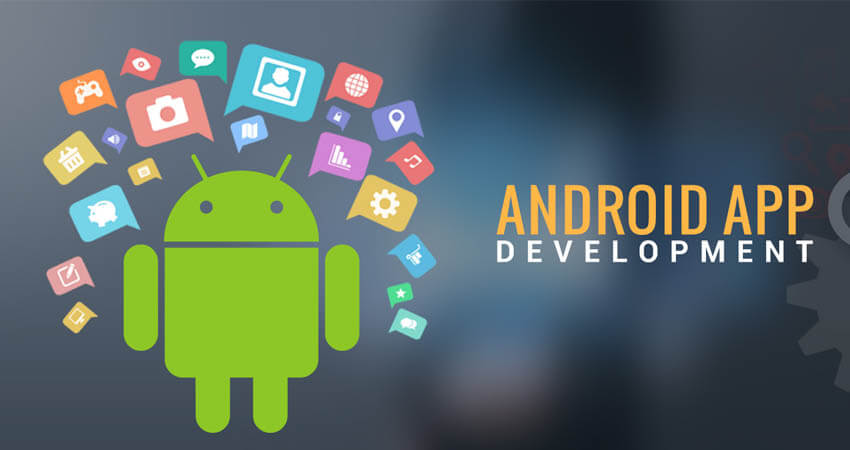Most Prominent 9 Technologies For Developing Android Apps


Android was first released in 2008 and currently, we are at the 9th version of the system which is codenamed as Pie.
With the advent of modern technologies, Android app development has undergone a sea change. Apart from native Android app development using Android Studio, there are several other frameworks or tools which are being widely used nowadays for creating effective Android apps.
These tools or frameworks enable you to easily hire an experienced Android developer to develop your app idea into a successful Android app.
Let us go through some of the widely used technologies ideals for developing Android apps:
Announced by Google on May 2017, Kotlin is considered to be one of the most recent frameworks for Android app development. It is based on Java Virtual Machine and is a statically typed programming language. It enables the developers to write reliable and safer code.
The compatibility of Kotlin with Java ensures that the developers do not have to work from scratch as the codes can be mixed well with Java. The compact, concise and intuitive coding syntax of Kotlin helps in saving time and makes the whole deployment process faster.
This is one of the most popular UI frameworks and JavaScript component developed by Google with extraordinary features for developing Android apps.
Angular JS is an open source framework is used widely to develop single page user-friendly Android apps. Using Angular JS the developers can create flexible and scalable mobile apps with component-based architecture.
Some of the reasons why Angular JS is being widely used for Android app development include:
You can experience an optimum performance of your apps with the component-based architecture of Angular JS. It helps in loading the applications faster on any browser along with making them responsible for any devices.
Angular JS has been designed in such a way so that it can be easily integrated with multiple platforms.
The applications developed using Angular JS are compatible with multiple browsers. As it can automatically handle JavaScript code for different browsers, the users can easily use the applications on their preferred browsers.
Cordova is an open source framework used for developing hybrid mobile applications. The advantage of Cordova is that it enables the developers to use their knowledge of web development for creating mobile apps on multiple platforms.
Cordova enables a developer to create applications for Android apart from iOS and Windows using standard HTML, JavaScript, and CSS. In addition to this Cordova comes with plenty of plug-ins that enables the developers to interact with the phones’ native features through JavaScript.
Plug-ins added using Cordova enable the applications to interact with the camera of the device, geolocation and can also be used to send notifications.
Being an open source framework React Native helps in developing mobile apps using JavaScript only. Introduced by Jordan Walke, this is a new technology which aims in simplifying the development process and ensures better user experience.
The functionalities of React Native apps do not differ from those built on Java or Swift. In fact, it uses the same UI building blocks as Native Android or iOS apps. However, using React Native, mobile apps can be developed in a faster way and is also less expensive.
Being an open source platform React Native provides documentation related to this technology freely available to everyone. The biggest advantage for a community-driven technology like this is that it provides help or information from the community experts online.
Another advantage is the recognition for writing codes. Here the developers can create portfolios and share their experiences which motivates them for writing safer and reliable codes.
The GitHub React Native Community is one such medium where the developers can share their experience and can also collaborate with other members.
React Native is preferred by the developers as they do not have to create separate apps for each platform. Thus it helps in saving both time and cost. The process of app development also gets faster using React Native.
To enhance the UI aspects of Android apps, React Native is just perfect. Creating a sequence of actions and implementing that in your mobile apps can be done smoothly using React Native.
This apart, the UI designed by React Native decreases the loading time, are more responsive and also offers a smoother feel.
Although we are discussing Android app development, to create any apps for that matter, you need to focus on the entire workflow process.
Figma is a recent modern tool that allows Android developers and designers for creating full-fledged functional UIs of the apps. There are different varieties of design elements that can be attached with the drag and drop feature of this tool.
As Figma works on the web, you are free from the burden of installing it. You can directly start working on your Android projects using Figma by visiting their site.
The most interesting thing about it is that multiple designers can work in collaboration with others, getting desired feedback from the projects, making or doing corrections as needed to an existing design. This is indeed a lacking feature in most of the app design software.
This is one tool which is useful in creating both web and mobile applications which can be integrated with the real-time database.
Server configuration is not needed as it is taken care of by Firebase itself. Some useful features of Firebase include the following:
The above mentioned advantages of the latest tools give abundant options to Android Developers and product owners to choose from, while developing Android apps.
While all these tools may not provide a comprehensive development environment, but based on their specific features, these tools can be used to create a specific variety of Android apps.
